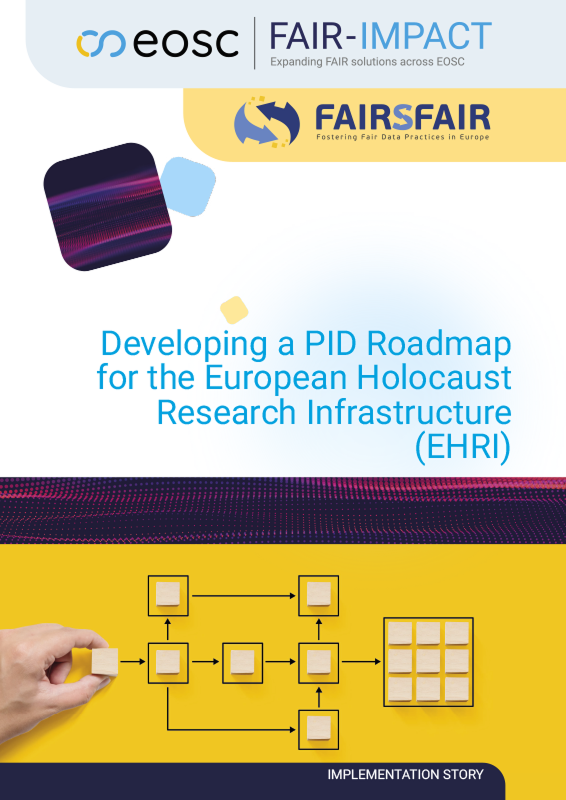Developing a PID Roadmap for the European Holocaust Research Infrastructure (EHRI)
The persistent identification of research outputs is part of good research data management practice and is central to the FAIR Principles and the vision of the European Open Science Cloud (EOSC). There are many types of persistent identifiers (PIDs) currently being used to identify data and other kinds of research outputs but also different actors involved in the creation of outputs and the organisations that employ them or fund their work.
To foster harmonisation on the use of different persistent identifiers, there is a need to define and implement research data and/or PID policies. FAIR-IMPACT’s Creating EOSC compliant Persistent Identifier (PID) policies support action. aimed to help successful applicants to complete self-assessments with regard to their PID policy readiness through the use of FAIRCORE4EOSC’s Compliance Assessment Toolkit (CAT) service which strives to encode, record, and query compliance with the EOSC PID policy. The support action did not focus on any specific PID type but rather provide general best practice guidelines on the creation and assessment of PID policies. This FAIR Implementation Story outlines the experience of the European Holocaust Research Infrastructure (EHRI) in relation to their self assessment.
Author:
Mike Bryant, NIOD Institute for War, Holocaust & Genocide Studies
